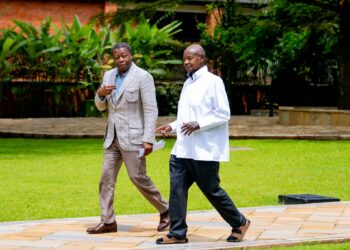Owners of SMEs and cooperatives in the coffee and tea sector have concluded a training on resource efficiency and circular production.
Organised by the Market Access Upgrade Programme (MARKUP) and International Trade Center (ITC), the two day training workshop held at Golf Course Hotel saw farmers and entrepreneurs tipped on how to reduce production costs and increase their productivity.
This was through a customised coaching programme by two ITC facilitators; Ann-Kathrin Zotz and Annegret Brauss.
The training was based on the analyses of buyer requirements and performance of local SMEs and cooperatives in terms of resource efficient and circular production processes.
According to the results of these analyses, efficiency benchmarks regarding waste production, energy and water consumption are set at factory level.
At the start of the coaching programme the performance of the selected SMEs and cooperatives is compared against the set benchmarks by locally hired experts. Based on the gaps identified, the experts advise the SMEs and cooperatives on the identification of measures to implement resource efficient and circular production practices.
The shortlisted measures are assessed from a financial perspective and compared through a cost-benefit analysis.
Using these results, a resource efficiency strategy and related communication plan are developed.
To ensure the implementation of the strategy, the SMEs and cooperatives receive further guidance on accessing (green) finance, technology and expertise.
The other benefits include; increased international competitiveness of value chain actors through reduced production costs and increased productivity.
This ensures business continuity and stable transactions in international value chains; Reduced adverse effects on the environment; and new business opportunities through the development of new products and services.
Funded by the European Union (EU), this initiative is implemented by ITC, the joint agency of the World Trade Organisation (WTO) and the United Nations, as well as the German Agency for International Development Cooperation (GIZ) and other national partners.
The project component supports SMEs and cooperatives in the the coffee and tea sector in Burundi, Kenya, Rwanda, Tanzania and Uganda with the main objectives being to support increased exports of agribusiness and horticulture products, promote regional integration and access to the European market.
Do you have a story in your community or an opinion to share with us: Email us at editorial@watchdoguganda.com









